Nick Holmberg's Blog, page 3
December 24, 2022
this ain’t your mother’s “A Christmas Carol”: a flash review
“… If I could work my will,” said Scrooge indignantly, “every idiot who goes about with Merry Christmas on his lips should be boiled with his own pudding, and buried with a stake of holly through his heart.”
Thus says the famous miser in Dickens’ 1843 novella. And it in the gloom embodied by this statement that the creators of the recent BBC production must have taken their inspiration. The paces that Scrooge is put through have the clear intention of boiling him in all the consequences of his own exploitive and inhumane practices.
For the first time in my life, I have read Dickens’ A Christmas Carol. Throughout my childhood, I experienced this story mostly through watching my uncle play Marley or Scrooge or Bob Cratchit in a variety of on-stage productions. I was also well-acquainted with Dickens’ famous ghost story through the 1984 production with George C. Scott as Scrooge.
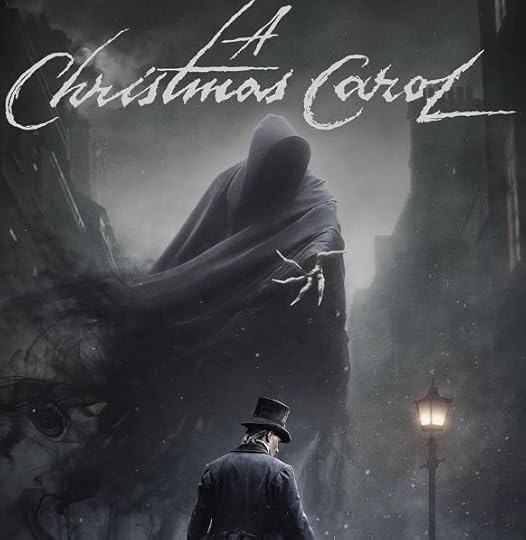
Reading the story in its original form was rewarding in its own way—e.g. the vivid descriptions of the sights and sounds of Scrooge’s little pocket of London in the 1840s were a gift to the numerous stage and screen directors who have treated the story over the years. But what was truly rewarding upon finishing the novella yesterday evening was watching the 2019 production of the tale, starring Guy Pearce as Scrooge. The show was originally presented as a 3-part miniseries. But since my Christmas shopping and wrapping was done, I watched the entire 2 hours 53 minutes in one sitting. And it immediately occurred to me that this ain’t your mother’s A Christmas Carol.
Suffice it to say that this version leans all the way into the ghost story and goes even further to depict the absolute horrors of human misery at the hands of imperialism, a legacy the British and American audiences still grapple with—hopefully in meaningful ways. In a stroke of genius, Steven Knight (writer) takes great liberty at filling in the novella’s ambiguity about Scrooge’s past and present business exploits; the result is a stunning frankness about the depravity of humanity.
The themes starkly depicted in the 2019 rendition—exploitation, unsafe labor practices, unethical business practices, the consequences of unfettered capitalism, slavery, and sexual coercion—would have made Dickens both proud and appalled: Dickens would have applauded the 2019 production’s way of speaking truth to power; paradoxically, Dickens would have loathed to see that the themes he treated throughout his literary career are just as relevant today.
December 23, 2022
my top 5 winter holiday songs
I am not a religious man, at least not in the traditional sense. So my playlists around this time of year look a little different than in past lives; and #1 doesn’t fit the mold of winter holiday song. To hell with it, though. There are people who call Die Hard a Christmas movie, so… And #2 does what it can to break down a traditional song into something far better than the original. My top five holiday songs (in rank order) bring joy. And I’m positive my little nieces and nephew across town will say the same thing. And that’s all that really matters. What are your top 5 holiday/Christmas songs? Leave them in the comments below.
 “untitled at Union Square Station” – Too Many Zooz“Greensleeves (live at The Village Vanguard 1961)” – John Coltrane Quartet“Santa’s Beard” – The Beach Boys [ask me someday what my alternate lyrics are to this song]“Sleigh Ride” (instrumental only) – Leroy Anderson performed by the Boston Pops Orchestra“Need a Little Christmas” – Percy Faith & His Orchestra and Chorus
“untitled at Union Square Station” – Too Many Zooz“Greensleeves (live at The Village Vanguard 1961)” – John Coltrane Quartet“Santa’s Beard” – The Beach Boys [ask me someday what my alternate lyrics are to this song]“Sleigh Ride” (instrumental only) – Leroy Anderson performed by the Boston Pops Orchestra“Need a Little Christmas” – Percy Faith & His Orchestra and ChorusHonorable mention: “Christmas Eve Can Kill You” – The Everly Brothers. I mean, it’s all in the title. Kat mentions it in chapter 3 of The Emergent as she starts to relate Alma’s particularly harrowing holiday:
“Yet I could relate to Alma’s desire to flee the sinking feeling she always had throughout most of December. We somehow became infused with the same sense that something fantastic was supposed to happen. But the alternately high-spirited and depressing tunes of the season led us to conclude that the hope in the season was all an illusion. Over the years of sad Christmases, we had grown used to the feeling. But that particular Christmas, by the time Alma reached her grandparents’ mountain home, Hosanna and “I’ll Be Home for Christmas” and “Christmas Eve Can Kill You” were just too much. So she did something I would never have done: she ran into the woods. Before she knew it, night was coming.”
December 22, 2022
the three days of Christmas: a new tradition?
Could you survive on just three days of Christmas?
This year, putting up the tree and a few lights kept getting bumped down the list of priorities. Professional concerns and artistic pursuits have taken precedence. And now, three days before the big day, there will be no lights, no tree.
And, dare I say, no stress, no FOMO.
It helps that there’s snow on the ground and a -30 wind chill; these things serve as a reminder to slow down, to hibernate, and reflect on the things that I have. I can, in fact, do that without the glow of Christmas lights. But today I will probably watch the first 30 minutes of Empire Strikes Back and the first two installments of the Die Hard franchise to get me in the spirit. And perhaps I’ll re-read the passage in The Emergent that fairly well sums up the expectation and disappointment of the season…the melancholy satisfaction, if you will.
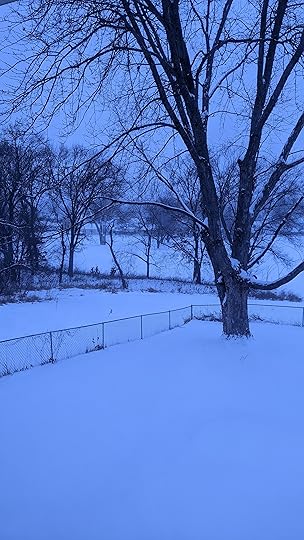
“…I could relate to Alma’s desire to flee the sinking feeling she always had throughout most of December. We somehow became infused with the same sense that something fantastic was supposed to happen. But the alternately high-spirited and depressing tunes of the season led us to conclude that the hope in the season was all an illusion.” –Kat Campos, The Emergent
December 21, 2022
a new approach to rejection letters

In general, I’m trying to be present with pain–to give it space to just be–before moving on with healthy coping mechanisms (e.g. swimming, jogging, continuing to work on my art: my writing). I’m told that being present for pain is as important as being present for joy. But it sure as shit is a lot harder work. To sit with disappointment means recognizing the uncomfortable physical feelings and stories your mind tells you without trying right away to fix the hurt or to “buck up” or “move on” or even to find a lesson from the experience. Sitting with anger and sadness is really fucking hard (largely because we have been taught from a young age that there’s no time to sit and just be with any sort of intense emotion or, worse yet, that it can and should be fixed). All told, being present for pain is like sitting with an inconsolable wailing 5-year-old without doing anything but acknowledging that kid’s hurt.
[image error]December 4, 2022
spoiler alert: the news is bad
Masochism is a writer’s catechism. You voluntarily subject yourself to likely devastation that is not unlike that of your first middle school heartbreak.
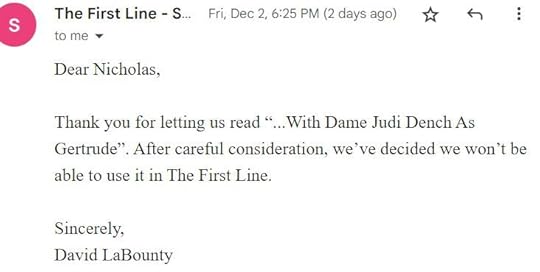
Receiving rejection notices from literary agents or literary journals never gets easier. It’s all part of the process, but the stories your mind tells you after each form letter are truly dark and try to convince you to stop writing, to stop fooling yourself. Those thoughts are summed up like this (click image below for more of these poems):
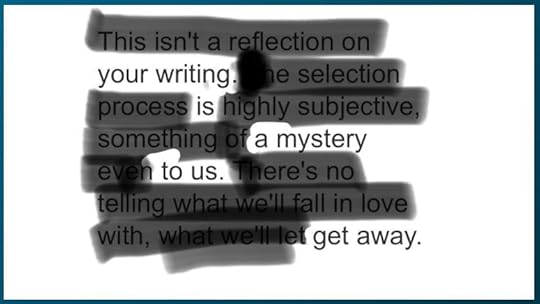
But after all the years and dozens of rejections, I still find a way to use the ruins of each hope to kindle the fire that powers me onward.
The Emergent – a synopsis
“Unknowns can be handled in two ways. You can stay on the beach and watch, imagining what
might—but probably won’t—happen. Or you can offer up your mere physical existence for the
chance to be a part of something bigger than yourself.”
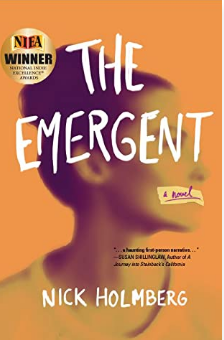
These are among the last words that Kat hears from her lifelong friend, Alma. The Emergent
opens at the dawn of the internet era, and nineteen-year-old Silicon Valley native Kat is alone.
Haunted, she wonders if her actions drove Alma-and the rest of her family-away. Soon after
Alma’s disappearance, Kat finds herself in New York City with a new companion. In an apparent attempt to understand why she ended up across the continent, Kat relates her family’s story. Set in places like the shores of Oakland after the 1906 San Francisco earthquake, Depression-era farming communities of California’s Central Valley, and cold-war Santa Clara Valley, the family history and its ghosts also seem to shroud who Kat really is. But a series of mysterious injuries compel Kat to reveal more about herself. Will these revelations save Kat from her past? Or will they forever define her future?
Contact the author for a full tip sheet and to discuss speaking engagements.
November 8, 2022
in honor of election day: Variations on a Sickness – a dark satire
Variant: a dystopian prelude (a very short chapter from my dark satire-in-progress)
Julius’s niece is dead after following the advice of Our Dear Leader (ODL).
The armies in the north are gearing up, their leaders salivating at our weakened defenses and superior, unused medical resources. A whole division of our troops in that region ingested a cocktail of over-the-counter cleaning supplies a couple days ago. And radio silence from ODL, the man who said such an injection could be a good idea. “Whaddya have to lose?”
ODL is a man whose power is derived from his association with and intimidation of scientists who found the “sociopath” gene. A decade ago, he won office on the idea that he—and he alone—could rid the country of sociopathy.
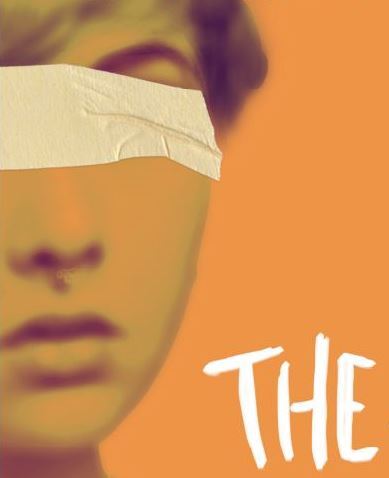
Were it not for Bliss, Julius might have voted for ODL all those years ago. But his wife’s constant raging brought on sweat, chills, fever, headache, dry mouth, and shallow breathing. Anxiety like this overwhelmed any vague fear Julius had about The Sickness.
“You cannot vote for him, Jules,” she had said ten years ago, her dinner getting cold. “Don’t be fooled by all the free coverage the media is giving him. I mean, listen to this fucking idiot prattle on incessantly. It’s the same thing every single time! It’s not news. It’s indoctrination.”
Bliss brought up a video on her phone of ODL at one of his recent election rallies. The future dictator screamed, “The illness—people call it The Sickness—of socioplathy [sic] inflicts one in every 25 people. And it’s a terrible terrible terrible disease that is coming for you and your kids. It’s Lizzie, a great doctor of medical, who determined all this. A great person; we have a very great friendship; Lizzie always tells me what I want to hear. I really like her. I know…we know, right Lizzie?…we know some great people, great great great wonderful people, who say they’re able to detect socioplarthy [sic].”
“Did you know?” Bliss shouted as she scrolled through social media for another example. “Did you know ODL’s followers think he is a brilliant clairvoyant? What the actual fuck is going on?! The goddamned lunatic says he is able to use his ‘immense intuition’—whatever the hell that means—to determine who has The Sickness.”
According to ODL, alarmingly high rates of The Sickness supposedly existed in people who wear glasses, read books, or write newspaper articles. Of course, this idea got massive pushback in the media, playing into ODL’s trap; the dissenting thinker-writer types (and those who wore glasses) were the first to be attacked, abducted, and disappeared after the election.
“These campaign rallies,” Bliss continued as she swiped up again and again on her screen. “These rallies are recruiting tools for CC squads. Christ & Country squads! Can you believe that shit?! I’m telling you, they’re going to start rounding up people like me…and you; guilt by association. And what if we have a baby? Who knows what those animals would do to our baby. Just listen to this.”
Again, she shoved the screen in Julius’ face. ODL said, “Once we know who’s socioplarthic [sic], we can do something about it. And it’s gonna be so great you’re not even gonna believe it. We’re gonna get rid of these dangerous dangerous dangerous people, the sylviaplathics [sic]. Lots of smart people are saying this is what we should do, some of the smartest people with the biggest you-know-whats.”
After his election, ODL and his cold-blooded devotees hunted down “the infected,” employing the very same extreme ruthlessness known in the most extreme cases of sociopathy. Without a trace of irony, CC squads crisscrossed the country gleefully chanting “89% of slaughter is laughter” while efficiently taking the supposed sociopaths out of the population. Through the success of re-education camps, conversion therapy, and deportation—but mostly through wholesale butchery —ODL triumphantly, and with little physical resistance, attained total and lifetime rule of the country.
The plucky band of late night hosts, saved by celebrity, soon were the only voices of opposition. So long as they didn’t fade from memory like a movie star with a dreadful agent, the hosts were protected by their popularity. And the kettles of civil unrest that they had kept simmering for years were now at a low steady boil. Now, the late night hosts’ millions of fans have come to believe that the spread of highly contagious, air-borne sociopathic variant to be a hoax, that the resulting national quarantine is part of an ODL power grab.
“This damned hypocrite!” Bliss yells at the screen, diverting her thoughts from much more local and personal tragedies. “He’s shameless, as usual. It doesn’t matter to his followers if he’s breaking his own quarantine decrees. He’s touring these huge indoor stadiums, spouting this new theory. Didn’t I say he would come for the babies? Ten years ago, I said this would happen. Have you heard this shit, Jules?”
Her screen thrust in his face, Julius has no choice but to watch.
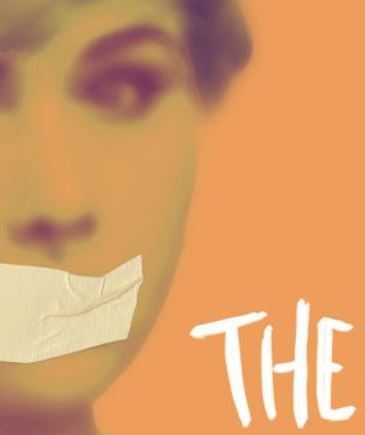
ODL shouts, screams, slavers to the adoring fans, “They say the novel sickness is a disease that infects little babies in the womb; and until now nobody had a way of knowing until much much much later, who had socio…socioplithy [sic]. They still say one in every 25 people is a socioplith [sic]. But some great people—people I know, great people, people who love me—great great great people are saying there’s a way to detect socioplicthy [sic] in the womb. Orange you glad you know that now?”
It is this kind of rhetoric that distracts even me, the demi-god: a semi-omnipresent, semi-omniscient, semi-omnipotent, or however it is you want to semi-classify me. I find myself distracted from this demi-epic about Julius.
His niece, Frenchie, died just the other day after a lethal cocktail of Tide Pods dissolved in bleach and a deep huff of aerosol disinfectant. She didn’t even get tasty Kool-Aid or shiny Nikes out of it.
October 28, 2022
a #badass podcast
It was great to talk about the biography of my novel. Take a listen for free on Google or wherever you get your podcasts.
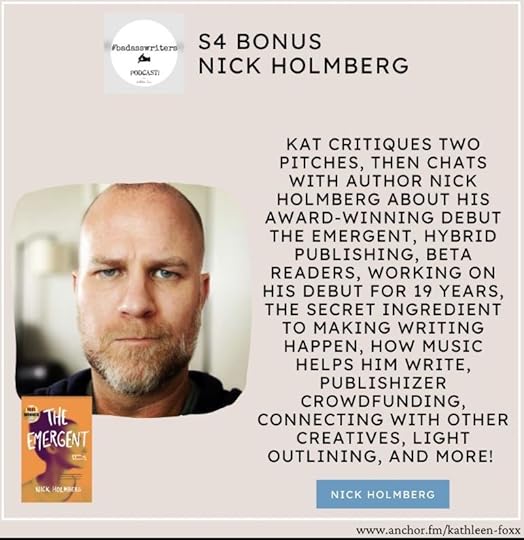
October 25, 2022
inspiration in the fall
I’ve just finished writing two new short stories. They’re called, “The Pain of Returning” and “…with Dame Judi Dench as Gertrude”.
There’s a reason I call this writing season. Everything is in full color. Sunny days glow. The cool weather and shorter days keep my butt to the chair so I can crank out new pages. If you follow me on Instagram (@nickholmbergwrites), you know I’ve been posting about inspiration for weeks now. See the pictures below for examples.
Where do you find your inspiration?



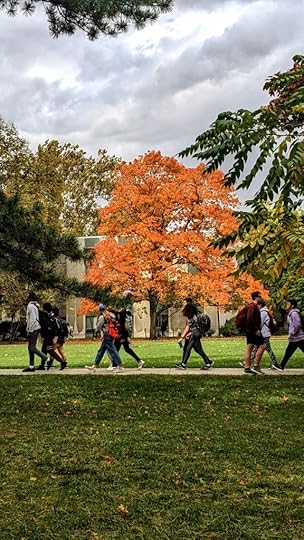
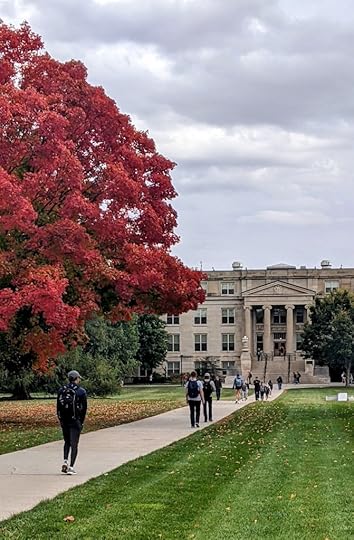










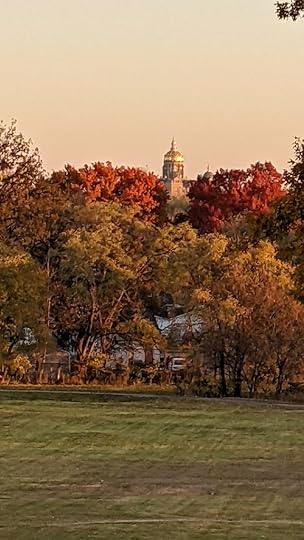


September 24, 2022
a dramatist’s memoir about epilepsy
A grad school pal from my ’03-’04 CCNY days is having a fantastic time doing a bit of a book tour. As an actor and college instructor, he is perfectly suited to engage and teach the public about his experiences caring for someone with a severe illness. And he’s a hell of a writer, too. She Danced with Lightning is a memoir of Marc Palmieri and his family navigating their daughter Anna’s epilepsy over the course of about a decade and a half.
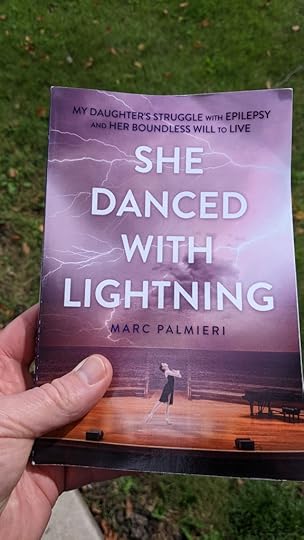
Since the book’s recent publication, I’ve seen many people posting on social media how they could not put Marc’s book down. They must be of stronger stuff then me. Marc, a playwright of several produced dramas, writes with the dramatic tension that one would expect of, well, a dramatist. The ebbs and flows of terror and helplessness that Marc depicts in his narrative were so evocative that I had to pace myself: death of a child and ruined marriage a definite possibility at every turned page. I could only read one chapter per sitting, experiencing Marc’s anxiety and helplessness in the face of the medical mystery that was Anna’s disability. This isn’t to say there aren’t moments of levity in this story (e.g. Marc’s concerns about being illegally in possession of medical marijuana; adolescent Anna’s mild Tourette-like symptoms brought on by the lesion buried in her brain). And there are moments in the story that are truly relatable: the life of the artist needing to juggle jobs while finding time to work on the next piece of writing.
Marc helps the reader understand that all things worth caring about take a hell of a lot of hard work, endurance, and faith. And for Marc to keep pressing forward in the face of such uncertainty would have been a far more daunting trial without a multitude of friends and family supporting him.



